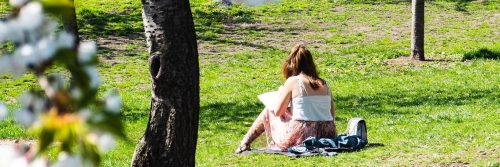Could the speed of our lives be sucking the life out of us?
The faster we live, the less time we have to truly live. The less we take in of everything we’re experiencing. The less we perceive the exquisite details of something. The less we realise there is exquisiteness. The less we notice the beauty around us.
The faster we live, the duller our senses become because our sense receptors get overloaded and only absorb a fraction of what we’re actually experiencing.
The faster we live, the less we reflect before we react. The less time we have to look forward to something and enjoy the anticipation. The less time we have to look back on it afterwards and re-experience the joy through our memories.

The more we strive to get done in less time, the less we appreciate life, other people and ourselves. The less we experience wonder, peace and connection with others. The less we feel at all.
Consider the following experiment involving theology students randomly assigned to one of two tutorial groups. The first group discussed the Good Samaritan story. The second group analysed the symbolism in the story of Adam and Eve. As soon as the tutorial was over, the students were informed they had to go to another part of campus to do an assessment. A third of the students in each group were told they had plenty of time to get there. A third of the students were told they had just enough time and should leave straight away. A third of the students were told they were already running late and had to get there as quickly as possible.
Along the way, the experimenters planted a test. They’d hired an actor to feign being in serious distress and in need of help. Did the students all stop to help? Let’s not forget they were all theology students with a mission to alleviate suffering for their fellow human. So who stopped?

All of them? The Good Samaritan group? Or did something else influence who did or didn’t help?
The tutorial topic made no difference to whether or not a student showed kindness to a person in need. The students who were told they had plenty of time to get to their assessment, all gave appropriate aid. Some of the students who were in a hurry stopped briefly. Very few of the students who had been told they were running late even acknowledged the person in distress. Time, not temperament, determined whether a student showed kindness to a person in distress.
The speed of our lives is robbing us of our humanity. Robbing us of self-care. And robbing us of the capacity to notice that it’s even happening.
How fast are you going now? What might speed be stealing from you?







